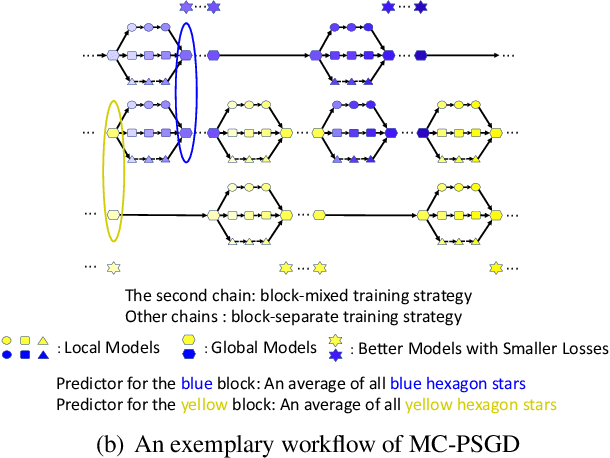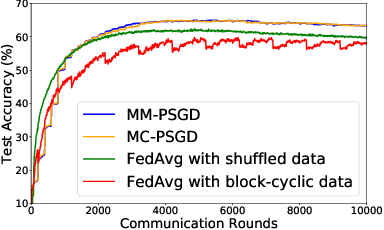Distributed Optimization over Block-Cyclic Data
Paper and Code
Feb 18, 2020



We consider practical data characteristics underlying federated learning, where unbalanced and non-i.i.d. data from clients have a block-cyclic structure: each cycle contains several blocks, and each client's training data follow block-specific and non-i.i.d. distributions. Such a data structure would introduce client and block biases during the collaborative training: the single global model would be biased towards the client or block specific data. To overcome the biases, we propose two new distributed optimization algorithms called multi-model parallel SGD (MM-PSGD) and multi-chain parallel SGD (MC-PSGD) with a convergence rate of $O(1/\sqrt{NT})$, achieving a linear speedup with respect to the total number of clients. In particular, MM-PSGD adopts the block-mixed training strategy, while MC-PSGD further adds the block-separate training strategy. Both algorithms create a specific predictor for each block by averaging and comparing the historical global models generated in this block from different cycles. We extensively evaluate our algorithms over the CIFAR-10 dataset. Evaluation results demonstrate that our algorithms significantly outperform the conventional federated averaging algorithm in terms of test accuracy, and also preserve robustness for the variance of critical parameters.
 Add to Chrome
Add to Chrome Add to Firefox
Add to Firefox Add to Edge
Add to Edge